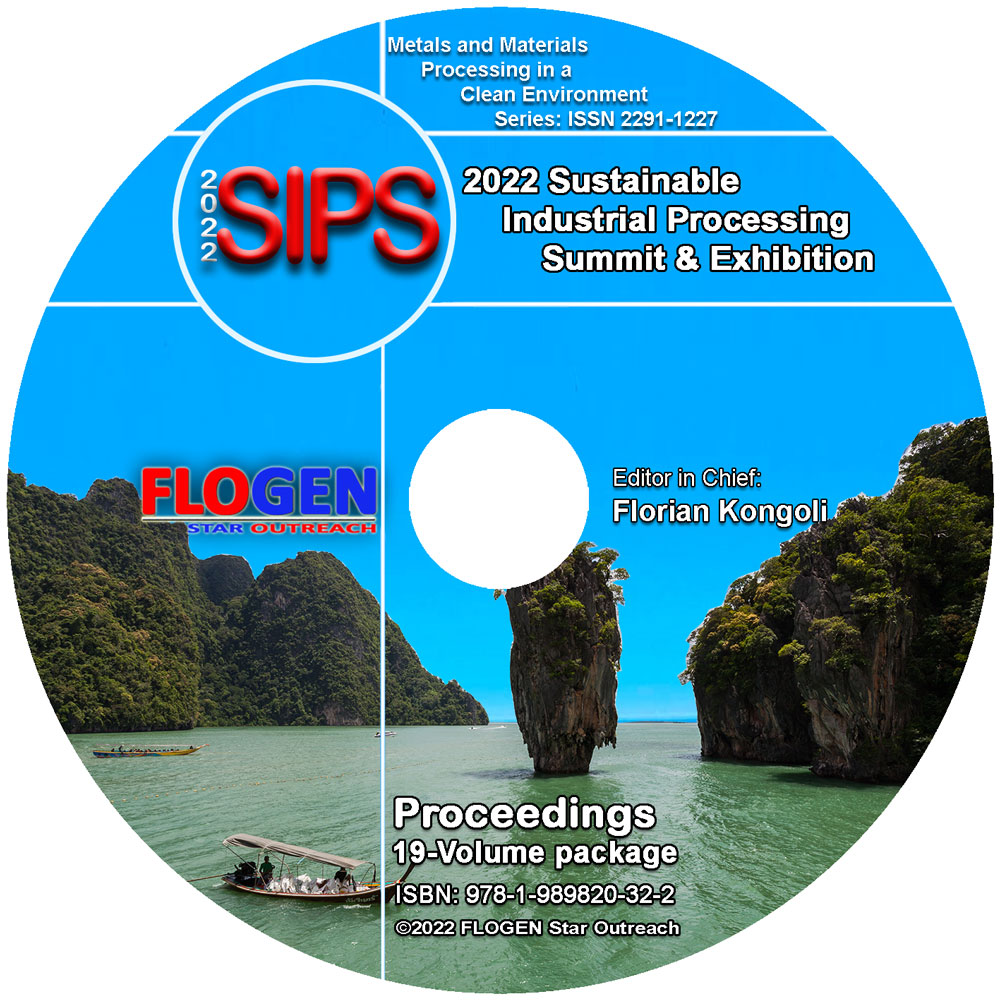2022-Sustainable Industrial Processing Summit
SIPS2022 Volume 19 Intl. Symp on Technological Innovations in Medicine and Covid19 and Infectious Diseases
| Editors: | F. Kongoli, F. Murad, T. Yoshikawa, S. Waldman, J. Ribas, S. Hirano, D. Joseph, R. Guerrant, W. Petri, H. Inufusa, H. Yedoyan, S. Heysell. |
| Publisher: | Flogen Star OUTREACH |
| Publication Year: | 2022 |
| Pages: | 130 pages |
| ISBN: | 978-1-989820-70-4(CD) |
| ISSN: | 2291-1227 (Metals and Materials Processing in a Clean Environment Series) |

CD shopping page
TRANSFORMATIVE MATERIALS AND SUSTAINABLE DEVELOPMENT
Fernand Marquis1;1SAN DIEGO STATE UNIVERSITY, San Diego, United States;
Type of Paper: General Plenary
Id Paper: 553
Topic: 46
Abstract:
Sustainable development is a comprehensive and complex system of systems requiring multidisciplinary and interdisciplinary science and technology inputs with economic, environmental, and social objectives. In broad terms, sustainable development is achieved when the present needs and challenges are met without placing in jeopardy the ability of future generations to meet their own needs and challenges. The trade space is very wide, and the multitude of trade-offs generate considerable challenges and make it often difficult to achieve an effective balance, most beneficial to all concerned. During the last sixty years the planet’s population has grown exponentially, from 2 to almost 8 billion people, and the technological progress achieved has been tremendous, especially in the industrialized countries. These trends are expected to continue, even at faster rates. However, all these associated technological activities in the pursuit of better living standards have created a considerable depletion of resources and pollution of land, water, air, and natural resources, including the food supplies for the global population. Considerable achievements have been obtained in the development of new and advanced materials such as light weight metallic alloys, metal matrix composites, intermetallic and carbon fiber composites, and hybrid materials. Nano, nano-structured and nano-hybrid carbon-based materials systems and nanotechnologies have also been deployed with considerable impact on energy, environment, and health. This presentation focuses on global perspectives of the impact of transformative materials with examples from several domains of sustainable development.